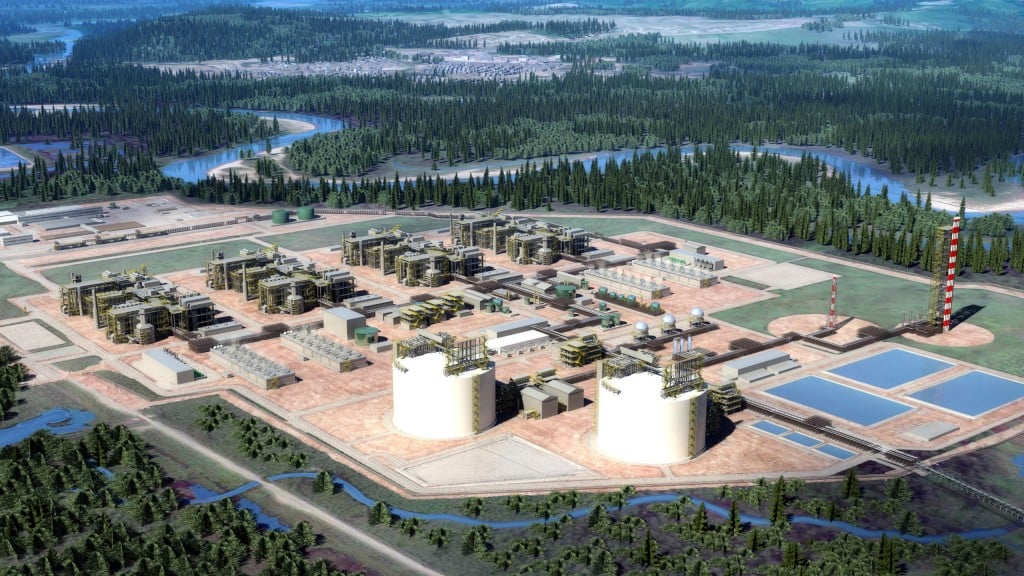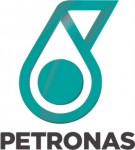$40 billion LNG Canada project to move forward
Partners including Shell, Petronas and others to build facility in Kitimat, BC - first LNG project approved on Canada's West Coast

British Columbia's long-awaited liquefied natural gas industry could be shipping product by the middle of the next decade after proponents of a $40 billion LNG plant confirmed they would proceed with construction.
LNG Canada will be built in Kitimat, on B.C.'s central coast, and is expected to produce around 14 million tonnes of LNG per year upon startup. The final investment decision, originally delayed in 2016, was announced by the five partners in the project: Royal Dutch Shell, PETRONAS, Mitsubishi, PetroChina and Korea Gas.
"The Final Investment Decision taken by our joint venture participants shows that British Columbia and Canada, working with First Nations and local communities, can deliver competitive energy projects," said Andy Calitz, CEO of LNG Canada. "This decision showcases how industrial development can co-exist with environmental stewardship and Indigenous interests."
LNG Canada's export plant has been designed to achieve the lowest carbon intensity of any large-scale LNG plant operating in the world today. LNG Canada achieved this through a combination of using renewable hydropower from BC Hydro and highly-efficient gas turbine engines. With demand for LNG expected to double by 2035 compared with today as a result of global commitments to reduce greenhouse gas emissions and improve air quality, LNG Canada will provide natural gas to countries where imported gas could displace more carbon intensive energy sources and help to address global climate change and air pollution.
"We look forward to helping Canada take its place on the global map of LNG exporting countries and want to recognize the important role played by all levels of government, First Nations and the many people that supported LNG Canada to help us get to an FID," said Calitz. "We also thank our joint venture participants for their trust in our ability to deliver a cost-competitive and reliable source of LNG for their global portfolios."
LNG Canada is advantaged by access to abundant, low-cost natural gas from British Columbia's vast reserves and the relatively short shipping distance to North Asia, which is about 50% shorter than from the US Gulf of Mexico and avoids the Panama Canal. The LNG Plant will be constructed on a large, partially-developed industrial site with existing deep-water port, roads, rail and power supplies. Each joint venture participant will be responsible to provide its own natural gas supply and will individually offtake and market its share of LNG. The FID is for two processing units or "trains," with first LNG expected before the middle of the next decade.
Prime Minister Justin Trudeau welcomed the decision to move forward, noting that the project will generate thousands of jobs in northern B.C. during construction and hundreds of long-term positions in the region.
"Today's announcement by LNG Canada represents the single largest private sector investment project in Canadian history. It is a vote of confidence in a country that recognizes the need to develop our energy in a way that takes the environment into account, and that works in meaningful partnership with Indigenous communities," Trudeau stated.
"The project LNG Canada is bringing to northern B.C. symbolizes the kind of balanced and sustainable path forward British Columbians are looking for," said B.C. Premier John Horgan. "We welcome the unprecedented commitment shown by the LNG Canada partners to work within our province's ambitious climate goals. The critical importance of this project is what it represents - the intersecting of economic development, jobs for local workers, partnerships with Indigenous communities and forward-looking climate leadership. We're delighted the global business community sees British Columbia as a natural home for this kind of investment."
LNG Canada's five investors all expressed their enthusiasm at moving the project forward.
"LNG Canada is an attractive investment opportunity in a strong joint venture, with companies that have deep LNG industry experience," said Maarten Wetselaar, Integrated Gas and New Energies Director, Royal Dutch Shell. "In the last two years, LNG Canada has improved its competitiveness, reduced execution uncertainty and gained significant stakeholder support. Together with our joint venture participants and contractors, we look forward to working with the local community, First Nations, government and the LNG Canada team to build and operate this game changing project for Canada's energy industry."
"The final investment decision with our joint venture participants is a significant milestone for PETRONAS and for the energy industry in Canada. The decision is a testimony of the strong collaboration among our partners and stakeholders who share the same aspiration of delivering long-term value via LNG, in line with our commitment to sustainable and responsible development of resources," said PETRONAS President and Group CEO Tan Sri Wan Zulkiflee Wan Ariffin.
"PetroChina is proud to be amongst the experienced joint venture participants that approved the Canada-based LNG Canada project today," said Mr. Wei Gao, CFO of the China National Oil and Gas Exploration and Development (CNODC). "As PetroChina strives to build a diversified oil and gas portfolio, the LNG Canada project is an attractive investment opportunity. The project's competitiveness, low carbon emissions and relatively short shipping distance to China mean LNG Canada can help supply the increasing demand for gas in China."
"By launching this project, Mitsubishi Corporation will diversify its LNG supply portfolio, which contributes to enabling more stable energy supply to Asian customers," said Hidenori Takaoka, Group CEO, Energy Business Group, Mitsubishi Corporation. "At the same time, this project will contribute to expanding local employment and economic development opportunities and will have the lowest GHG emissions of any LNG export facility in operations today. This is consistent with Mitsubishi's goal of generating economic, societal and environmental value."
"LNG Canada is Korea's first major project in Canada," said Jongkook Lim, Senior Executive Vice President, KOGAS. "LNG Canada is a significant and meaningful opportunity for Canada, as well as for the participants in the Joint Venture. It will provide a great opportunity for Korea to diversify its LNG supply sources and will be an example of LNG projects in Canada that value safety, environment and the local community in the years to come."
British Columbia's long-awaited liquefied natural gas industry could be shipping product by the middle of the next decade after proponents of a $40 billion LNG plant confirmed they would proceed with construction.
LNG Canada will be built in Kitimat, on B.C.'s central coast, and is expected to produce around 14 million tonnes of LNG per year upon startup. The final investment decision, originally delayed in 2016, was announced by the five partners in the project: Royal Dutch Shell, PETRONAS, Mitsubishi, PetroChina and Korea Gas.
"The Final Investment Decision taken by our joint venture participants shows that British Columbia and Canada, working with First Nations and local communities, can deliver competitive energy projects," said Andy Calitz, CEO of LNG Canada. "This decision showcases how industrial development can co-exist with environmental stewardship and Indigenous interests."
LNG Canada's export plant has been designed to achieve the lowest carbon intensity of any large-scale LNG plant operating in the world today. LNG Canada achieved this through a combination of using renewable hydropower from BC Hydro and highly-efficient gas turbine engines. With demand for LNG expected to double by 2035 compared with today as a result of global commitments to reduce greenhouse gas emissions and improve air quality, LNG Canada will provide natural gas to countries where imported gas could displace more carbon intensive energy sources and help to address global climate change and air pollution.
"We look forward to helping Canada take its place on the global map of LNG exporting countries and want to recognize the important role played by all levels of government, First Nations and the many people that supported LNG Canada to help us get to an FID," said Calitz. "We also thank our joint venture participants for their trust in our ability to deliver a cost-competitive and reliable source of LNG for their global portfolios."
LNG Canada is advantaged by access to abundant, low-cost natural gas from British Columbia's vast reserves and the relatively short shipping distance to North Asia, which is about 50% shorter than from the US Gulf of Mexico and avoids the Panama Canal. The LNG Plant will be constructed on a large, partially-developed industrial site with existing deep-water port, roads, rail and power supplies. Each joint venture participant will be responsible to provide its own natural gas supply and will individually offtake and market its share of LNG. The FID is for two processing units or "trains," with first LNG expected before the middle of the next decade.
Prime Minister Justin Trudeau welcomed the decision to move forward, noting that the project will generate thousands of jobs in northern B.C. during construction and hundreds of long-term positions in the region.
"Today's announcement by LNG Canada represents the single largest private sector investment project in Canadian history. It is a vote of confidence in a country that recognizes the need to develop our energy in a way that takes the environment into account, and that works in meaningful partnership with Indigenous communities," Trudeau stated.
"The project LNG Canada is bringing to northern B.C. symbolizes the kind of balanced and sustainable path forward British Columbians are looking for," said B.C. Premier John Horgan. "We welcome the unprecedented commitment shown by the LNG Canada partners to work within our province's ambitious climate goals. The critical importance of this project is what it represents - the intersecting of economic development, jobs for local workers, partnerships with Indigenous communities and forward-looking climate leadership. We're delighted the global business community sees British Columbia as a natural home for this kind of investment."
LNG Canada's five investors all expressed their enthusiasm at moving the project forward.
"LNG Canada is an attractive investment opportunity in a strong joint venture, with companies that have deep LNG industry experience," said Maarten Wetselaar, Integrated Gas and New Energies Director, Royal Dutch Shell. "In the last two years, LNG Canada has improved its competitiveness, reduced execution uncertainty and gained significant stakeholder support. Together with our joint venture participants and contractors, we look forward to working with the local community, First Nations, government and the LNG Canada team to build and operate this game changing project for Canada's energy industry."
"The final investment decision with our joint venture participants is a significant milestone for PETRONAS and for the energy industry in Canada. The decision is a testimony of the strong collaboration among our partners and stakeholders who share the same aspiration of delivering long-term value via LNG, in line with our commitment to sustainable and responsible development of resources," said PETRONAS President and Group CEO Tan Sri Wan Zulkiflee Wan Ariffin.
"PetroChina is proud to be amongst the experienced joint venture participants that approved the Canada-based LNG Canada project today," said Mr. Wei Gao, CFO of the China National Oil and Gas Exploration and Development (CNODC). "As PetroChina strives to build a diversified oil and gas portfolio, the LNG Canada project is an attractive investment opportunity. The project's competitiveness, low carbon emissions and relatively short shipping distance to China mean LNG Canada can help supply the increasing demand for gas in China."
"By launching this project, Mitsubishi Corporation will diversify its LNG supply portfolio, which contributes to enabling more stable energy supply to Asian customers," said Hidenori Takaoka, Group CEO, Energy Business Group, Mitsubishi Corporation. "At the same time, this project will contribute to expanding local employment and economic development opportunities and will have the lowest GHG emissions of any LNG export facility in operations today. This is consistent with Mitsubishi's goal of generating economic, societal and environmental value."
"LNG Canada is Korea's first major project in Canada," said Jongkook Lim, Senior Executive Vice President, KOGAS. "LNG Canada is a significant and meaningful opportunity for Canada, as well as for the participants in the Joint Venture. It will provide a great opportunity for Korea to diversify its LNG supply sources and will be an example of LNG projects in Canada that value safety, environment and the local community in the years to come."





